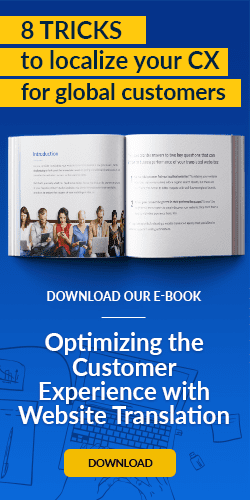Website translation solutions are not created equal. While many deliver linguistic accuracy, not all possess the technology and skills required to optimize the content they translate for today’s search engines.
Read on to learn:
- The limitations of traditional translation agencies and in-house translation teams in delivering SEO-focused web content.
- The importance of optimizing the SEO-rich “invisible” content that customers never see.
- The value of choosing a digital-first translation agency that specializes in website localization.
How Most Approaches Fall Short
In-house translation teams and traditional translation agencies rarely bring legitimate SEO value to the website translation projects they manage.
Why? They lack the specific expertise and capabilities to leverage the SEO value of your primary-market website, to increase your localized site’s value in international search results.
Traditional translation agencies lack the ability to leverage the SEO value of your primary-market website.
Take traditional translation agencies. Above all, they focus on delivering linguistic accuracy. But meticulous word choice and grammar does little to improve page-rank in regional search results. That’s not how customers conduct Internet searches. Legacy agencies don’t conduct the kind of best-in-class keyword research that’s required to create meaningful lifts in organic traffic. This will likely apply to any in-house translation team you might create, too.
Beyond Localized Keywords
There are translation agencies that specialize in website translation and the unique digital-first challenges they pose. They conduct the kind of authentic, market-specific keyword research that drives organic traffic—and is so persuasive, it improves on-site engagement, too. But that’s not where these technically-advanced approaches end. It’s where they begin. They also localize “under the bonnet” text that resides in website metadata—this is content often neglected by traditional translation services—that also improve a site’s search rankings.
Expertly localizing this hidden content doesn’t just help search engines locate and display your localized website. It also works within the unique pixel and character limits of regional search engines, so that the localized site “plays by the local rules” to further improve its ranking.
In-market keyword research isn’t where great vendors end their international SEO efforts. It’s where they begin.
Another way that digital-first agencies can boost localized SEO is by translating structured data (or microdata). These coded markups highlight or sample snippets of content in search engine results pages. When a site’s structured data is optimized for SEO, search engines will identify the type of content provided on the website and display it accordingly. This boosts both brand visibility and click-through rates.
Another edge digital-first agencies have over legacy vendors? They’re experts at implementing a special website management attribute called hrflang. This ensures the translated version your website properly displays in your customers’ local-language search results.
Hreflang also preserves the same relevance and rank of your primary-market site. This effectively re-purposes your existing SEO investments in your flagship site at no additional cost.
The best website translation agencies are also fluent in the nuances of search engines beyond Google, such as Russia’s Yandex and China’s Baidu, and leverage that knowledge to further optimize their localizations.
Conclusion
Quality website translation is about more than linguistic accuracy. After all, a localized website does little good if it can’t be discovered by its intended customers.
When choosing a website translation solution, make sure to examine the full spectrum of services they provide, including international SEO. Ask about their capabilities, and how they optimize localized content for organic search.
The answers provided may very well determine the success of your online expansion efforts.
Last updated on October 24, 2017
